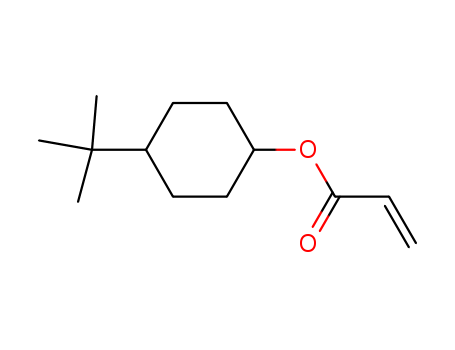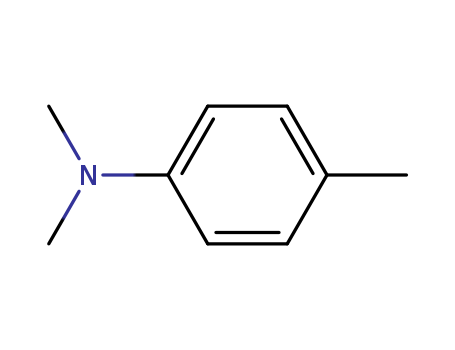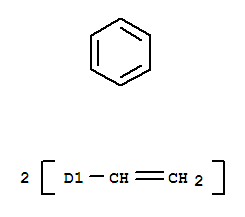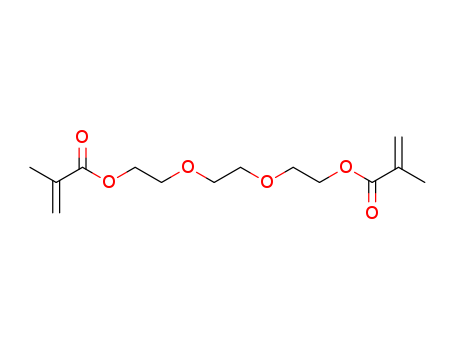
109-16-0
- Product Name:Triethylene glycol dimethacrylate
- Molecular Formula:C14H22O6
- Purity:99%
- Molecular Weight:286.325
Product Details
Buy reliable Quality Triethylene glycol dimethacrylate 109-16-0 raw material with Honest Price
- Molecular Formula:C14H22O6
- Molecular Weight:286.325
- Vapor Pressure:0.000119mmHg at 25°C
- Melting Point:-52 °C
- Refractive Index:n20/D 1.461(lit.)
- Boiling Point:335.5 °C at 760 mmHg
- Flash Point:159.1 °C
- PSA:71.06000
- Density:1.063 g/cm3
- LogP:1.25820
Triethylene glycol dimethacrylate(Cas 109-16-0) Usage
|
Reference |
Krifka, S, et al. "A review of adaptive mechanisms in cell responses towards oxidative stress caused by dental resin monomers. " Biomaterials 34.19(2013):4555-4563. |
|
Application |
Triethylene glycol dimethacrylate (TEGDMA) is a resin monomer widely used in the composition of dentin bonding agents and composite resins to restore teeth structures impaired by caries and/or fractures. However, resin monomers can be released into the oral environment and can trigger hazardous biological effects on oral tissues. The release of the resin monomers due to degradation and incomplete polymerization can occur hours or days after the treatment. Due to its hydrophilic nature, hydrolysis plays an important role in the degradation processe of TEGDMA. Chemical interactions with oral fluids and mechanical influences may also cause the degradation of resin monomers. Direct contact or diffusion of resin monomers through the dentinal tubules creates ways of interaction between dental pulp tissue and resin monomers. Dentin thickness and the severity of caries lesions are important factors in determining the amount of resin monomers interacting with dental pulp tissue. TEGDMA has been reported to cause cytotoxicity, impaired cellular functions, pulpal inflammatory responses, and changes in the immune system. In addition, TEGDMA may reduce the mineralization capacity of dental pulp cells by decreasing the expression of the mineralization related genes pathways and causing adverse effects. |
|
General Description |
Triethylene glycol dimethacrylate (TEGDMA) is a hydrophilic, low viscosity, difunctional methacrylic monomer employed as a crosslinking agent. |
InChI:InChI=1/C14H22O6/c1-11(2)13(15)19-9-7-17-5-6-18-8-10-20-14(16)12(3)4/h1,3,5-10H2,2,4H3
109-16-0 Relevant articles
PROTEIN-POLYMER COMPLEX, TGase SUBSTRATE-CONTAINING POLYMER, TGase SUBSTRATE-CONTAINING MONOMER, METHOD FOR PRODUCING PROTEIN-POLYMER COMPLEX, AND METHOD FOR IMPROVING PROTEIN FUNCTION ON INTERFACE OR IN VICINITIY OF INTERFACE OF SOLID-LIQUID
-
Paragraph 0153; 0154; 0155, (2016/08/17)
Provided is a protein-polymer complex wh...
Polymerizable silicone copolyol macromers and polymers made therefrom
-
, (2014/08/19)
A polymerizable dimethicone copolyol mac...
COMPOSITION FOR POLYELECTROLYTES, POLYELECTROLYTES, ELECTRICAL DOUBLE LAYER CAPACITORS AND NONAQUEOUS ELECTROLYTE SECONDARY CELLS
-
, (2008/06/13)
A polymer electrolyte-forming compositio...
Process for synthesis of Di(meth)acrylic acid esters
-
Page/Page column 7, (2008/06/13)
A process for the synthesis and recovery...
109-16-0 Process route
-

-
753-73-1
dimethyltin dichloride

-
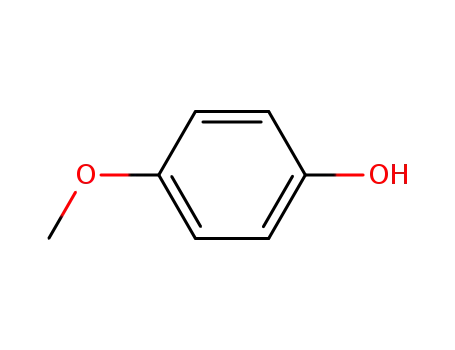
-
150-76-5
4-methoxy-phenol

-

-
80-62-6,114512-63-9,143476-91-9,25188-98-1,9011-14-7
methacrylic acid methyl ester

-

-
109-16-0
triethyleneglycol dimethacrylate
| Conditions | Yield |
|---|---|
|
With
sodium methylate; hydroquinone;
In
n-heptane; 2,2'-[1,2-ethanediylbis(oxy)]bisethanol;
|
91% |
-

-
920-46-7,26937-45-1
Methacryloyl chloride

-
![2,2'-[1,2-ethanediylbis(oxy)]bisethanol](/upload/2025/4/cd475f01-f6aa-4a21-ae9b-bd1731d36408.png)
-
112-27-6
2,2'-[1,2-ethanediylbis(oxy)]bisethanol

-

-
109-16-0
triethyleneglycol dimethacrylate

-

-
2351-42-0,25736-86-1
2-(2-(2-hydroxyethoxy)ethoxy)ethyl methacrylate
| Conditions | Yield |
|---|---|
|
2,2'-[1,2-ethanediylbis(oxy)]bisethanol;
With
pyridine;
In
dichloromethane;
at 18 - 28 ℃;
for 0.5h;
Inert atmosphere;
Methacryloyl chloride;
In
dichloromethane;
at 18 - 28 ℃;
for 4h;
Cooling with ice;
Inert atmosphere;
|
109-16-0 Upstream products
-
920-46-7

Methacryloyl chloride
-
112-27-6

2,2'-[1,2-ethanediylbis(oxy)]bisethanol
-
79-41-4
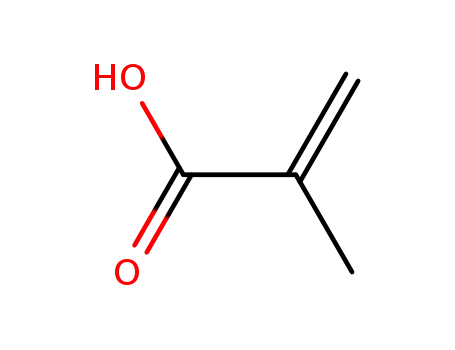
poly(methacrylic acid)
-
80-62-6

methacrylic acid methyl ester
Relevant Products
-
Ethoxylated trimethylolpropane triacrylate
CAS:28961-43-5
-
Divinylbenzene
CAS:1321-74-0
-
4-TERT-BUTYLCYCLOHEXYL ACRYLATE
CAS:84100-23-2


